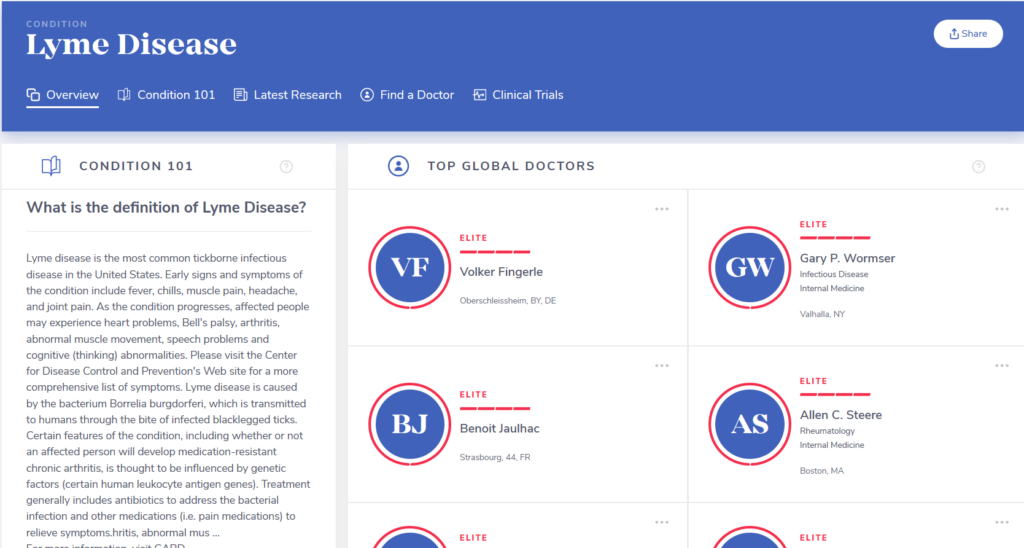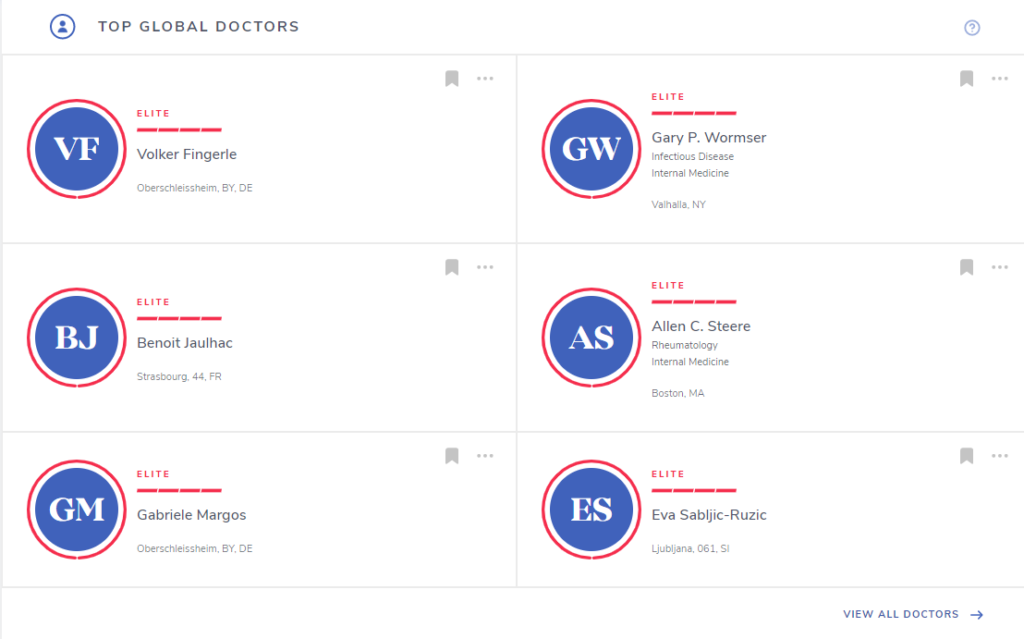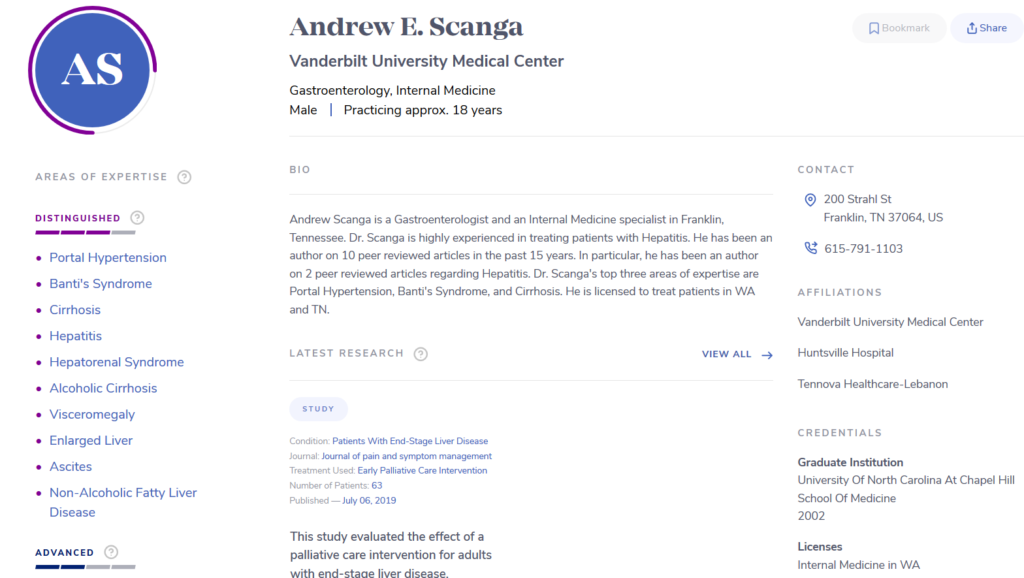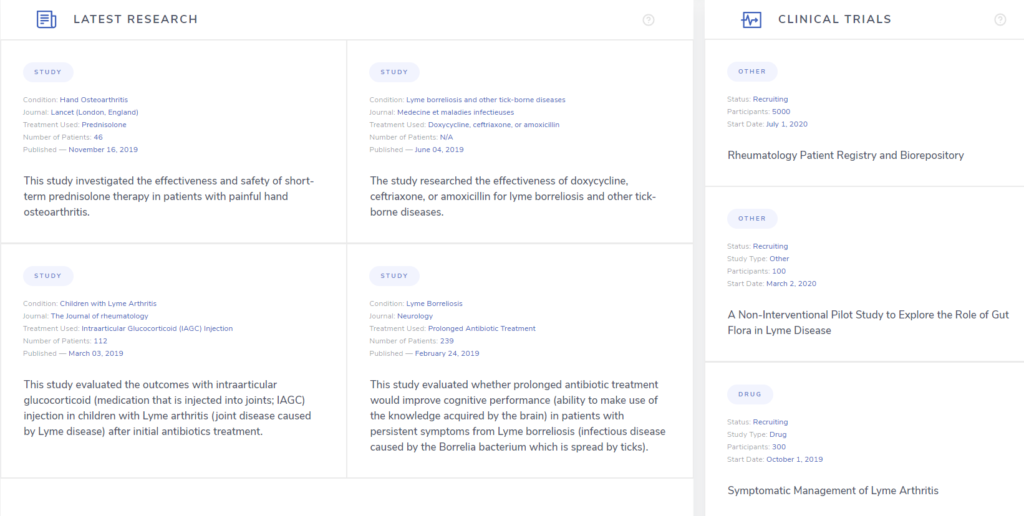We make decisions every day that may or may not result in positive outcomes. While many of these decisions don’t carry much weight, when it comes to decisions about your health, risk is a luxury you cannot afford. Poor decision-making can have harmful effects, and “turning back” is not as easy as relocating to a new city or choosing a new career. Finding a good doctor who can treat you properly is critical, especially if you are facing a severe health situation.
But even with so many qualified doctors out there to choose from, not every doctor is the best choice. Delayed diagnoses and inconsistent treatments are also a concern as diagnostic errors affect 12 million American adults yearly. Doctors may appear qualified and trustworthy on online review sites, but they still may not be the right fit for you or have enough experience to treat you properly.
How do you find a good doctor who is the right fit for you? What criteria do you use to evaluate doctors and identify the good ones from the best ones? In this article, we will answer these questions and more, and outline six steps that will teach you how to find the right doctor. Our goal is for you to feel more in control of your health journey so you can mitigate some of the risks and eliminate the uncertainty.

Step 1: Evaluate the Type of Doctor and Expertise
Before you begin the process of searching for the best physician, it’s essential to evaluate what type of physician you are looking for and the extent of their expertise.
To start the evaluation process, assess the below factors.
- Condition and expertise. With more than 7,000 health conditions plaguing patients today, one physician can’t be an expert in each one. If you already received a diagnosis, ensure the physician has experience and success in treating patients with your condition.
- Type of doctor. Determining the right kind of doctor can be a slippery slope. Let’s say one of your symptoms is chronic headaches. Do you visit a primary care physician, neurosurgeon, cardiologist, oncologist, allergist, or an ENT? You would need to know what is causing the symptom to choose the right physician. But, if you knew the cause of your symptoms, you wouldn’t need a doctor! To narrow down a potential diagnosis, visit our symptom checker, a tool built with powerful Artificial Intelligence that analyzes your symptoms and provides a list of possible conditions. Use this data to learn about the conditions and narrow them down so you can more easily find the best doctors.
Step 2: Seek Referrals, Not Reviews
Personal referrals from a trusted friend or family member can be helpful, provided the doctor meets your expectations for care. Have a detailed discussion with the person referring the doctor and ask about their experience, whether positive or negative. Here are some questions:
- What stood out to you that made you refer this doctor?
- Was there anything you would suggest for improvement?
- Would you revisit this doctor? Why or why not?
Online physician reviews can be misleading.
With so many physician review sites accessible, the typical doctor search often includes a few Google searches and about 15-20 minutes of reading through online reviews. If a physician gets multiple five-star reviews, they must be top-notch, right? Not necessarily.
If we’re honest, we sometimes choose doctors like we would a local bakery—we sift through online reviews looking for positive and negative experiences, and choose based on what Sally down the street said about her stellar experience.
You don’t have to settle on the first five-star doctor you find from a Google search. While online reviews (if they are legitimate) can be helpful when assessing a physician’s bedside manner and staff friendliness, they do not evaluate the physician’s past and current training and experience, important factors when finding a good doctor.

Regarding referrals, they can also be misleading, so be careful. While you may receive high marks for a referred doctor from someone you trust, we still recommend you continue your search using some of the additional criteria in this guide. While gaining personal referrals is better than surfing online reviews, your health priorities may not fully align with this referrer, so only use referrals to narrow your focus.
Step 3: Check Your Insurance, But Prioritize Care
Your healthcare journey may involve an insurance search for in-network doctors. Though this step is important, we didn’t make it the first one because we don’t want finances to prevent you from getting the care you need and deserve.
While many people do not have the finances to visit a physician outside of their insurance network, that doesn’t mean an out-of-network doctor won’t work with patients. Doctors who genuinely care about their patients’ health will often discount their services.
If you find an in-network doctor who satisfies your criteria, that is the ideal scenario. But, if you can’t, consider other doctors as they may still be an option for you.
Step 4: Narrow Down Your Choices and Make Final Evaluations
By now, you may have a shortlist of potential physicians who have the experience and knowledge and who may or may not be in your insurance network.

Let’s whittle down the list a little more by assessing the following criteria:
- Board certification. Doctors can get certified by The American Board of Medical Specialties (ABMS) for one or more disciplines. When a physician becomes certified in a specialty, this means they completed specialized training and passed an exam for the specialty in which they seek certification. To determine whether a doctor is certified and in which disciplines, review the ABMS website.
- Hospital affiliation. Any procedures that require a hospital visit will occur at the hospital with which your doctor has an affiliation. If you have an idea of the type of procedure you may need, find out if the hospital routinely performs these procedures and the outcomes. You can also find some information on this hospital rating website that grades and evaluates hospitals’ safety protocols, readmission rates, problems with surgery, safe medication administration, and more. Note that there is some criticism of these rating websites as there aren’t enough independent studies to prove their impact. Use this information, but couple it with additional studies and data to get a fuller picture.
- Experience and additional education. Choose a doctor who has enough experience to give you the best care. Look for providers who hold leadership positions, publish articles in medical journals, receive additional medical training and certifications, engage in cutting-edge treatments, and current scientific research.
- Willingness to refer. Choose a physician who is not opposed to referring you to a more experienced doctor, if necessary. The physician’s priority should be your health and success.
- Years in practice. Some people feel uneasy getting treated by new doctors. If you are looking for a healthcare provider who has experience treating a specific condition, consider a doctor with ample experience.
- Red flags (malpractice claims, suspensions, sanctions, disciplinary actions). To identity disciplinary actions, first, find out the states in which the physician attained licenses via this website. Next, consult the state medical board’s website to check for any disciplinary actions.
- Gender. You may feel more comfortable with a male or female doctor.
- Location. A good doctor may be worth traveling for, but this depends on your personal preference.
- New patient acceptance. Is the physician accepting new patients?
Step 5: Prepare Your Questions. Visit Your Doctor.
The evaluation process doesn’t end once you visit your doctor. During your visit, take notice of staff friendliness, the duration of the doctor visit (did you feel rushed?), and other factors that are important to you.
Come prepared. If you have questions about a specific condition, read up on the latest research and treatments before your visit. Ask the doctor specific questions regarding your research and look for detailed, thoughtful answers regarding the different approaches.
Step 6: Get a Second (And Third) Opinion
We recommend getting a second opinion, especially if you are dealing with a rare condition. Doctors’ protocols may reflect their treatment philosophy, which means you may receive different treatment options from each doctor even though your diagnosis is the same.
Also, it’s essential to do your due diligence—even doctors make mistakes. A 2016 John Hopkins research study suggests that medical errors are the 3rd leading cause of death in the US.
A Reliable, Quicker And Easier Way to Find the Best Care
When it comes to life-changing healthcare, every second counts. Rapid access to the right information, especially for complex conditions, is critical to receiving the proper care and potentially saving lives. For this reason, we created MediFind.
MediFind is an advanced platform that removes the time and guesswork out of finding the right doctor, and within minutes, provides you with the best medical experts and treatment options for your condition.
Let’s walk through a quick step-by-step MediFind search for doctors who have expertise in a specific condition.
Step 1: Search for Doctors by Condition
With its cutting-edge machine learning techniques, MediFind enables you to start your search by doctor, condition, or symptom. For example, if you wanted to find doctors for a specific condition (ex: Lyme Disease), simply type the condition into the search bar, which will auto-populate with the condition. Then, click the arrow to begin your search.

The MediFind Doctor Finder pulls up data and information on the condition as well as notable doctors who are experts in this field.

MediFind also ranks doctors by the level of achievement, research, and experience to help you choose according to the type of care you are looking for. You will see the physician’s rankings above their names.

2. Review the Doctor Profile
When you click on a doctor, MediFind compiles profile information for the doctor, including experience, areas of expertise, published studies, clinical research, hospital affiliations, and more.

3. Review the Latest Research
MediFind also compiles the latest research and clinical trials, updated in real-time. Our Latest Research feature summarizes recent articles published in medical journals so you can access the most up-to-date research for a condition.

4. Note About Rare Conditions + MediFind
The rare disease community is growing, with millions of people struggling worldwide. Getting accurate diagnoses and worthwhile treatments can often take months if not years of laborious research and “guinea pig” treatment that may or may not result in a positive outcome.
People who suffer from rare conditions such as Richter Syndrome, Culler Jones Syndrome, or the more than 7,000 other different health conditions, should not be forced down a rabbit hole of misinformation and questionable diagnoses. Every patient deserves care they can trust and the ability to access that care fast. Rapid data mining and discovery for chronic, serious, and rare health conditions and their experts are now possible with MediFind.
Time is Not On Your Side. But We Are.
MediFind’s CEO Patrick Howie has firsthand experience with delayed access to the right doctors when his brother sadly passed away from a semi-rare cancer a few years ago.
After hundreds of hours of searching for the best surgeons and treatments for his brother’s rare condition, the family found an “expert” they thought could help. Unfortunately, this ended with the doctor sending the patient home to let nature take its course. Thankfully, the family was able to connect with a leading expert who understood the condition better, which extended his brother’s life for another two years.
Then, after applying some of the data techniques he did with MediFind, Patrick had stumbled upon another promising treatment. Still, unfortunately, it was too late as his brother had passed away. In his brother’s honor, Patrick has dedicated his life and work to MediFind so he can help millions of people avoid going through what he went through, and find better care faster.
MediFind connects you to potentially life-saving information, fast. When it comes to your health, there is nothing more precious in the universe.



